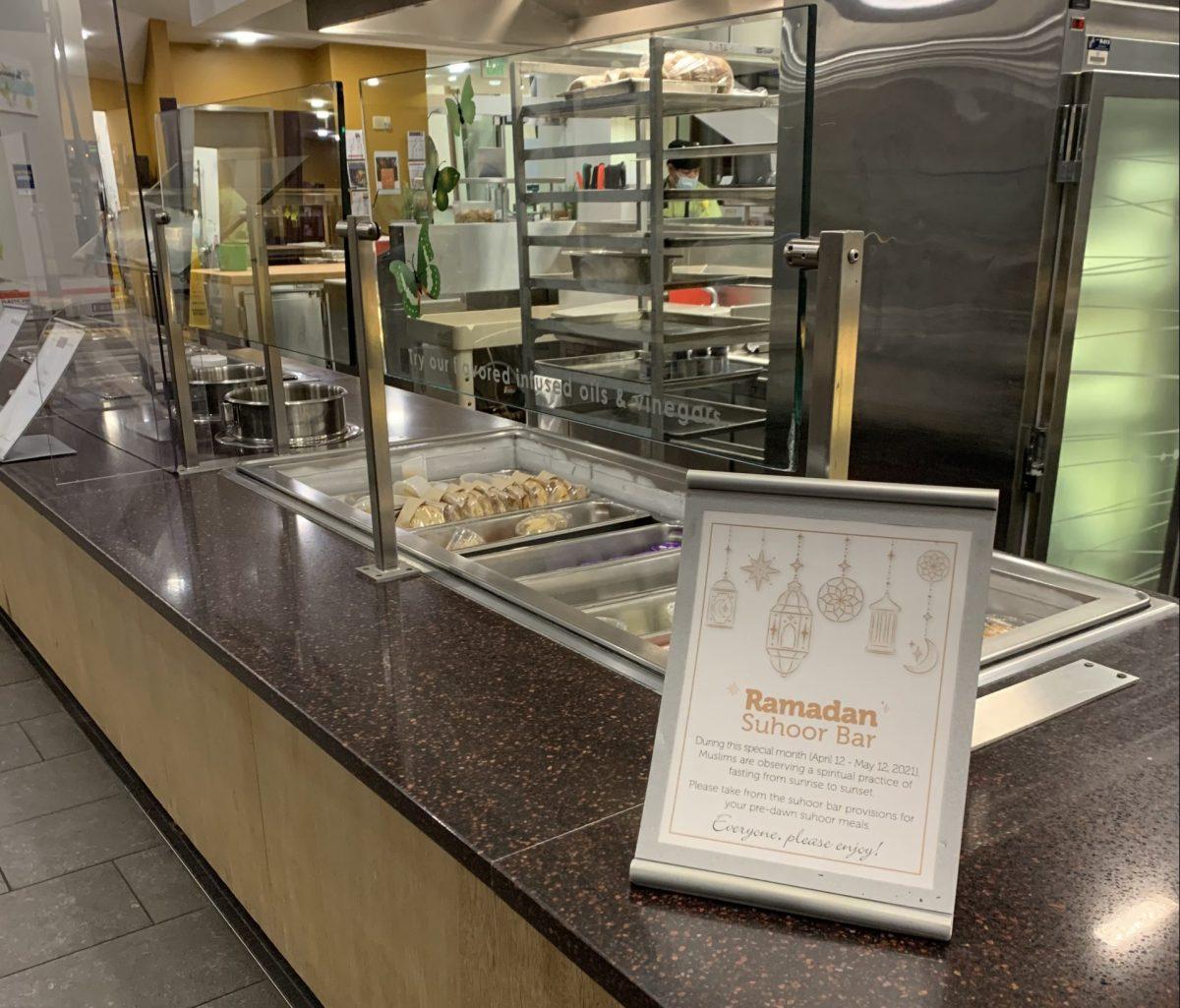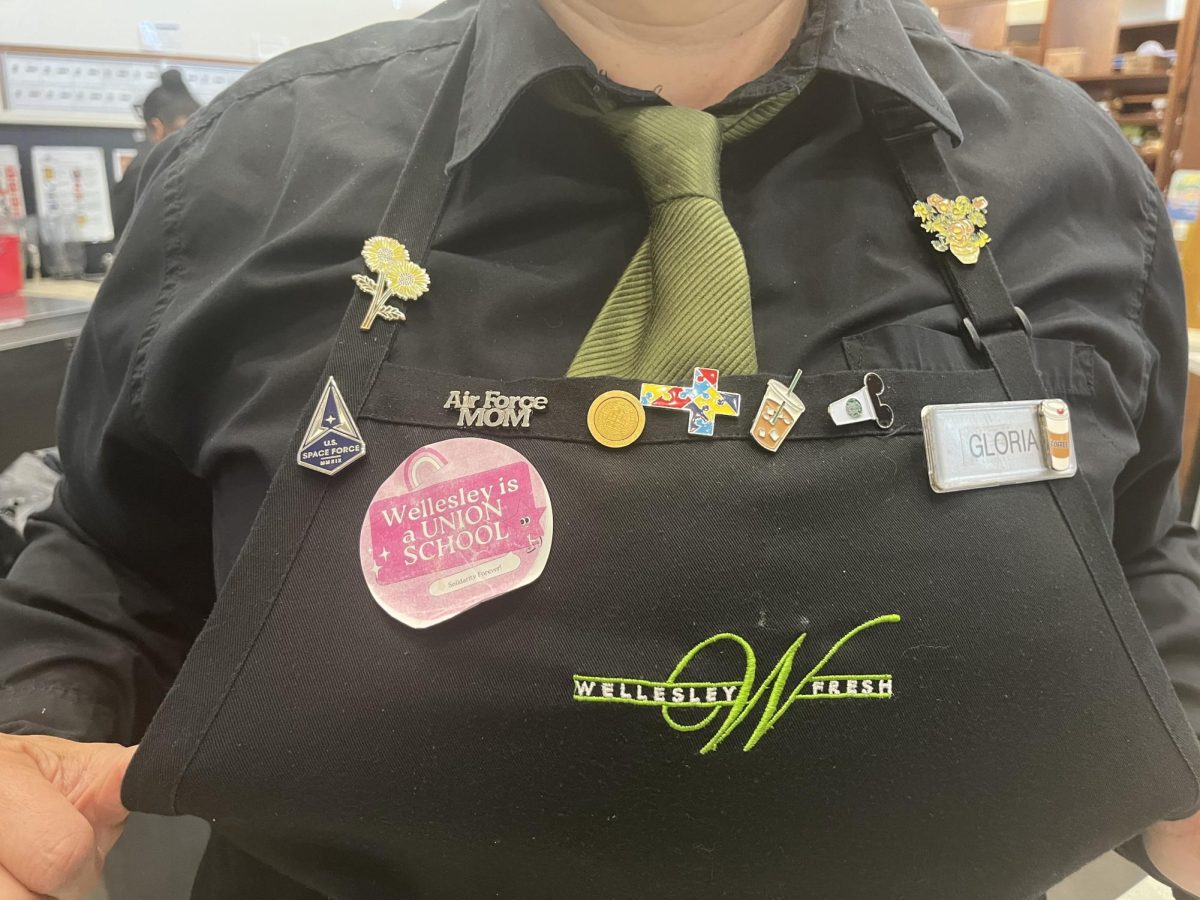The holy month of Ramadan began on the evening of April 12 this year. For Muslims around the world, this month is dedicated to self-reflection and spirituality. Muslims observe Ramadan by fasting, going without food or water, from sunrise to sunset every day. Typically, Ramadan is a time to focus on community, but the COVID-19 pandemic has changed how Muslim communities observe this month together.
At Wellesley, students are learning to cope with fasting away from their communities at home, and the pandemic which restricts their interactions with the community of Muslim students on campus as well. The on-campus Muslim community has been able to break their fast and pray together for Maghrib, the sunset prayer time, and on Friday afternoons in Tishman.
“We have provided [prayer nights] two nights a week,” Muslim chaplain Amira Quraishi wrote in a statement to the News. “Both prayer gatherings have provided these Muslim women the opportunity to lead prayers, which is traditionally led by men. This is a special and unique way that Wellesley College supports women’s leadership in all areas of life.”
Despite the restrictions, Yusra Suliman ’23 believes that Ramadan brought the Muslims students’ community closer together.
“Everyone is always so busy and so this is different,” Suliman said. “[While students would] have other requirements before [Ramadan] you would have to plan time to meet, whereas now everyone is kind of synched up on the same schedules … it allows you the opportunity to just kind of take a step back from school and academics.”
While the Wellesley Muslim students’ organization, Al-Muslimat (ALM), has been working to provide students with a welcoming community, Tazrean Hossain ’24 feels the campus community as a whole has not always been that way. Hossain recounted a particular incident in the Bao Pao Lu Chow Dining Hall where a non-Muslim student took food from the suhoor bar, which had food set out specifically for Muslim students to take for their suhoor meal at sunrise before starting their fasts.
“There was this one girl who was like, ‘Ooh, pancakes, could I have some?’ and [the dining hall worker] said, ‘Are you observing Ramadan?’” Hossain said. “She just said, ‘Sure.’ And later on I even heard her mention to her friend, ‘Yeah I don’t know what this is for, but I got all this food.’ It’s just really disrespectful, and students have been doing that every night.”
At the time, there were no signs by the bar indicating that the food was reserved for Muslim students. Hossain later made a post about this incident in the Overheard at Wellesley Facebook group that garnered significant student attention.
Hossain also explained that the late night options that were provided were not nutritious enough for people who had not eaten the whole day. However, she did think the dining hall improved somewhat after the first two weeks.
“A lot of the Muslims have taken to just going to Lulu early. We get dinner at 7:15, bring it back downstairs, pray and then eat that because we do have to get the dinner options,” Hossain said. “They served samosas last night, which was nice. Having [something] as simple as [different] food, it takes you back home.”
Suliman also agreed, elaborating further that students of the Muslim community had given suggestions to AVI regarding what kinds of food they would want.
“The first two weeks were especially hard because they didn’t have enough food for us and it also wasn’t fasting-appropriate food. We gave them a whole list of cultural foods and things we would want to see and we gave them links to recipes and everything,” she said. “We had really been under the assumption that they would try and replicate some of these things, but the first two weeks, they didn’t do that at all.”
This is not the first time Wellesley Fresh has provided food specifically for students observing a religious holiday. For example, shabbat dinners are served for Jewish students, according to dining hall manager Julie Jordan.
“Wellesley Fresh is always willing to collaborate with ORSL and student organizations by providing culturally diverse foods utilizing their favorite recipes in support of a holiday or special event,” Jordan wrote in a statement to the News
Deena Saadi ’22 had a more positive experience with the dining hall. When she went to pick up food from the suhoor station, a dining hall worker approached her to ask if she needed anything else.
“[He said] ‘Is there anything else that you need, anything else that I can get for you?’ And then he literally pulled out a notebook and a pen,” Saadi said. “Usually when people say that they want to help you or things like that it’s just words… But him actually pulling out that notebook, [showed] it’s not just words. They actually do care and they actually are making an effort.”
However, Saadi did attribute the food and consideration given to Muslim students during Ramadan to Al-Muslimat and their advocacy.
As glad as students were to find community with each other, they still had to cope with COVID-19 restrictions. On April 27, Quraishi sent out an email to ALM, notifying the students that someone within the community had tested positive for COVID-19. All Ramadan gatherings were to be suspended until further notice. Suliman had to quarantine, as she was a primary contact of the positive case. She explained her remorse that a case emerged when Ramadan was a time so focused on community.
“It’s really unfortunate though that it had to be someone who was attending the group prayers and things like that,” she said. “It’s just inevitable, what happened, because Ramadan is about community and everyone is interacting with each other and hanging out more with each other.”
Suliman also pointed out that the Wellesley administration had not issued a statement or acknowledgement of Ramadan. Hossain agreed, emphasizing that the Wellesley student body needed to be more educated about Ramadan, and more considerate of their peers.
“I just think [they] need to educate themselves and I think that Wellesley’s administration could do so much more to support us openly, and they’re not,” she said. “[It] is really frustrating because the ALM community is huge here. There are so many Muslims on this campus who want or need support and we all have to rely on each other. There isn’t this public acknowledgement of our struggles and accomplishments and what Ramadan means to us.”
However, Hossain believed Muslim students were still able to find comfort and connection with each other.
“I think that’s the one thing that COVID or college can’t really take away from us: the ability for ALMers to connect with each other,” she said.









